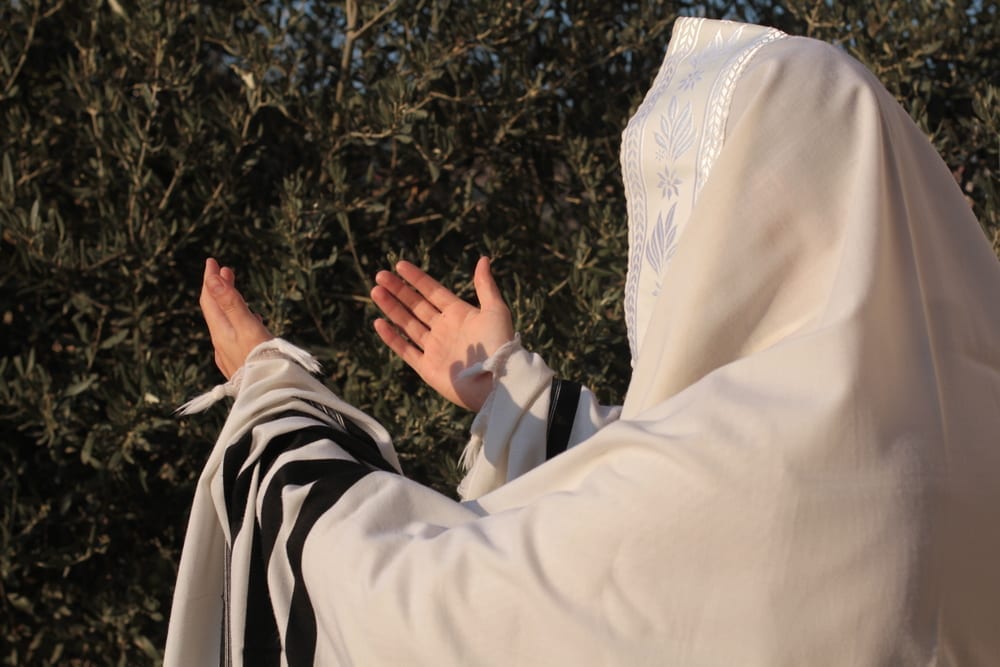Yoav asks: Hello Rabbi, there is something I have been thinking about a lot lately. The sages say that in the place where those who repent stand, even the most perfect righteous individuals cannot stand. Also that G-d is more exacting with the righteous even in the most minute things.
1) So I’m wondering why would anyone want to be a righteous person all his life? After all, it’s better to be not religious and repent and then one gets a better place in heaven.
2) Why is it even worthwhile to be a righteous person? G-d is more exacting with the righteous, and in the end, they don’t get to the level of those who repent. I know this can’t be true, but I don’t understand why. What is my mistake?
3) Another question connected to the above. Why does it say that G-d desires the prayers of the righteous and therefore gives them suffering? If they don’t deserve it, why should they suffer?
* * *
Greetings, Yoav, and thanks for your interesting questions.
The definition of one who repents
First we have to rectify a common mistake. The righteous also repent, because “there is no righteous person on earth who does only good and doesn’t sin” (Eccl. 7:20). All of us have to repent. Even the most righteous person has to correct things if he wants to advance in his observance of Torah and the commandments. It also says that “A righteous man will fall seven times and get up.” (Prov. 24:16). He is not called a righteous man because he fell, but because he gets back up time after time and doesn’t give in to despair.
The original source of the statement you quoted is: “The place where those who repent stand, the righteous do not stand.” (Sanhedrin 99a). As we saw, there are righteous who also repent and there are those who repent who are also righteous. At first glance, the difference between them isn’t clear. Rabeinu Behayai, the author of Chovot Halevovot, clarifies matters and he explains that all those who keep the commandments are also those who repent. He goes on to divide those who repent into three different kinds:
1. The first kind who repents is a righteous person who never did a sin for which he deserves the grave punishment of excision (koreis), but sometimes he didn’t keep positive commandments (like putting on tefillin, or he may not have had the correct intentions when fulfilling the commandment of the Four Species, etc.) and now he is repenting for those sins. All his sins are forgiven and he is called a completely righteous person.
2. The second kind who repents is one who transgressed negative commandments but not those for which he would deserve death or excision (for instance, he sinned by shaving with a razor, ate forbidden foods, etc.). After he repents from his sins, he attains a higher level than a perfect righteous man for the reason that he is now ashamed of his previous deeds and is more humble about the commandments he keeps. In the merit of his increased humility, he is privileged to reach this special level — “In the place that those who repent stand, even the perfectly righteous can not stand” (Rambam Laws of Repentance 7:4).
3. The third kind who repents is one who did grave sins for which one is sentenced excision and death by court (such as adultery, Shabbos transgressions, etc.) but he repented them. His sins are forgiven but in this case he will have to be cleansed by undergoing sufferings and various trials that will rectify his soul. He also will merit to become a righteous and pure individual, but because of the gravity of his sins which caused these blemishes in his soul, he will not merit a higher level (Chovot Halevovot, Gate of Repentance, Chapter 8)
It is never worthwhile to sin!
G-d created people to fulfill His commandments. The goal of the creation was to observe the commandments and obviously not to transgress them. One who sins has completely overturned the purpose of creation. Our sages warn: “Whoever says ‘I will sin and then repent’, ‘I will sin and then repent’, will not be allowed to repent.” (Yuma 8:9). The goal is not to do sins and then to repent, but not to ever sin! And this is what we pray for every day in the morning blessings: “May it be Your Will, the L-rd our G-d… to make us study Torah regularly, and hold fast to Your commandments. Do not bring us to the grasp of sin nor into the grasp of transgression or iniquity. Do not cause us to be tested or brought to disgrace.”
Since sinners diminish their spiritual state and ruin themselves, they need a special “boost” to repent, otherwise they will forever remain in their state. G-d in His great compassion gives them a chance to repent and even gives then a special opportunity to develop and elevate themselves despite what they ruined in the past. It’s like an “affirmative action” law which gives priority to especially weak sectors in the population.
The one who is repenting faced great difficulties in his life and had trials and challenges which he failed. Not only does he have to repent from his sins but he also has to deal with his urges and memories from the past, so he is in a weakened state and feels broken and disgraced in the eyes of G-d and himself. For this reason, G-d has special mercy on him and shows him special love to help him get closer to Him, to restart his spiritual growth and to become a righteous person who is not any less than other righteous individuals who hadn’t sinned like him.
All of our prophets said words of encouragement to sinners to repent. “Come now, let us debate, says the L-rd. If your sins prove to be like crimson, they will become white as snow; if they prove to be as red as crimson dye, they shall become as wool.” (Isa. 1:18). It goes without saying that these verses encourage a sinful Jew to repent, but they also teach that G-d comes towards sinners who have tainted themselves and gives them special help to repair and rectify themselves. They get a special rank which encourages them to repent and be able to love themselves again despite their past.
As Rabeinu Bechayei writes, and as Maimonides explains in Laws of Repentance, sinners who have transgressed sins that carry a punishment of excision will have to undergo sufferings to atone for their sins. Nevertheless, Maimonides sought to emphasize the special distinction of all who repent to encourage them. Therefore Maimonides does not differentiate between the kinds of repenters as Rabeinu Bechayei does and instead describes that all repenters will achieve a high place in heaven because they learned how to fight and overcome the different trials and urges in which they had previously stumbled. The more difficult it was for them, the greater their reward. In his holy words: “One who repents should not consider himself distant from the level of the righteous because of the sins and transgressions that he committed. This is not true. He is beloved and desirable before the Creator as if he never sinned.
Furthermore, he has a great reward for he has tasted sin and yet, separated himself from it, conquering his evil inclination. Our Sages declared: ‘In the place where those who repent stand, even the completely righteous are not able to stand.’ The level of one who repents transcends the level of those who never sinned at all, for they overcome their evil inclination more.” (Laws of Repentance 7:4)
Maimonides’ words contain encouragement for every person who repents, whatever his situation. He will yet merit a special level in heaven for his great effort and personal struggle in overcoming his evil inclination.
Those who repent receive a special treasure in heaven
I would like to offer an explanation why a person who repents has tremendous merit in the Hereafter (both for his humility as Rabeinu Bechayei wrote, and for overcoming his evil inclination, as Maimonides wrote).
It doesn’t mean that he automatically becomes as great as Moses and Aaron. It instead means that in the merit of him repenting and rectifying his sin, he gets a special treasure which is saved for him in heaven. In heaven, as is well known, there are very many treasures put aside for those who overcame difficult trials and rectified their character traits (for each righteous person and the special rectification he had to do in the world).
For example, there is a special treasure set aside for Jews who were insulted but didn’t insult back (Shabbat 88b). Insults and humiliations are especially difficult trials which G-d decides to send people at a certain point to increase their reward in heaven, but not every person merits to get them. Similarly, there are people who were given the trial of having an especially vile nature which causes them to keep falling and they have to keep repenting.
An observant Jew shouldn’t choose to sin and then repent just as we don’t look for insults and humiliations. However, after G-d decided to send a person a difficult trial and he ended up sinning and having to repent, he should know that the next time he overcomes the trial and demonstrates his repentance, he will get a special reward in heaven, a special treasure that is reserved only for those who repent.
Even though there are special treasures reserved for those who pass various trials such as humiliations and repenting, nevertheless, the main and largest treasure is reserved for Torah study and keeping commandments. It’s important to remember that one’s main spiritual level in the hereafter is determined by the degree which one kept Torah and the commandments: “If you learned much Torah, you will get much reward.” (Ethics of our Fathers 2:16). This of course also applies to those who repent and who become great Torah scholars and righteous individuals. Rabbi Akiva began to study Torah only at the age of 40, and he became one of the greatest and most righteous sages during the period of the Mishna! The opportunity to strengthen oneself spiritually and grow in Torah exists in every age. Those who repent get a special additional reward in heaven for their great effort to repent, but one’s main reward is for laboring in Torah.
Why is G-d so exacting with righteous individuals?
You asked why G-d is exacting with the righteous to a hairsbreadth (including people who repented and became righteous). The answer is that when the righteous pass the hardest and most challenging trials, they are rewarded with a colossal, exalted portion in heaven that is unfathomable to us and they rejoice in their spiritual attainment. To what can this be compared? To a person who worked in a shop only 8 hours a day as an employee and made an minimum living, while the owner of the business worked from day to night importing goods from far away lands and in the end became rich and now lives a life of comfort and luxury. The righteous person is like that important businessman. He worked hard to fulfill the commandments and is even prepared to suffer for them in this world in order to achieve an immensely great eternal life.
G-d sends great trials and challenges to those superbly righteous only because they are ready and happy to take on these challenges and even revel in them. As Rabbi Akiva told his students when he was killed for the sanctification of G-d’s Name: “My whole life I was frustrated over this verse ‘[you shall love G-d with all your heart] and all your soul’ [and I asked myself] ‘When will the time come so I can fulfill it?” (Brachot 61b).
It goes without saying that G-d doesn’t sends such difficult trials to one who doesn’t appreciate how valuable they are. Our books of ethics describe the situation to a king’s general who can’t wait to be sent to the next war, so he can achieve victory at another front and prove his devotion to the king and get another promotion. The king sends the general to the front not to punish him but so he can prove his heroism. Truly righteous individuals rejoice in the sufferings which come upon them, because they see them as additional challenges that will advance them spiritually.
It was said about great individuals like the matriarchs of our nation, “Why were our matriarchs barren? Because G-d desires the prayers of the righteous” (Breishit Rabbah 45:4). These righteous individuals are the foundation on which the world stands. They fulfill G-d’s Will out of love and are happy with their sufferings. The world stands on their shoulders and their prayers helps and rescues the entire generation. Their reward in the hereafter is beyond all imagination.
To sum up, those who repent also choose to become righteous and the righteous also choose to repent from their previous level. At the end of the day, the main thing is to be righteous because one who chooses to be righteous will be closer to G-d and will merit an eternal abundance in the hereafter.





